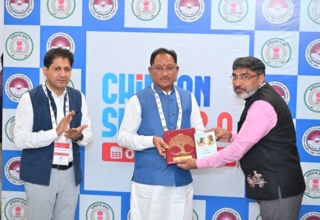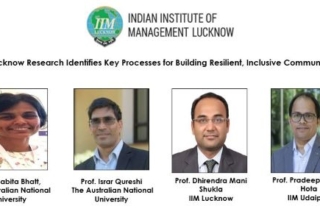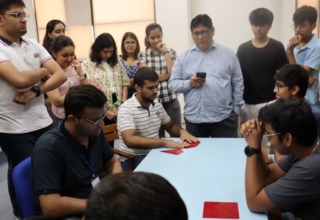Training in manufacturing, construction and plumbing sectors incentivized. At the same time, some experts see it as a replica of STAR Scheme with little change
The Rs 1500 cr Pradhan Mantri Kaushal Vikas Yojana (PMKVY) would soon be rolling and fanning out as the government has finalized the scheme. It aims to encourage standardization in the certification process and initiate a process of creating a registry of skills. It will also enable and mobilize a large number of Indian youth to take up skill training and become employable and earn their livelihood. Increase productivity of the existing workforce and align the training and certification to the needs of the country. Pradhan Mantri Kaushal Vikas Yojana (PMKVY) is the flagship outcome-based skill training scheme of the new Ministry of Skill Development & Entrepreneurship (MSDE). This skill certification and reward scheme aims to enable and mobilize a large number of Indian youth to take up skill training and become employable and earn their livelihood. It will also bring about a paradigm shift from input-based to outcome-based skill training in the country. It also seeks to significantly scale up skill training activities in the country and enable skill training to happen at a fast pace without compromising quality.
Training will be done against standards (National Occupational Standards – NOS and Qualification Packs – QPs for specific job roles) formulated by industry-driven bodies, namely the Sector Skills Councils (SSCs). Based on assessment of skill demand and the ‘Skill Gap Studies’, target for skill training would be allocated to sector skill councils by NSDC in consultation with the SSCs, States/UTs and the Central Ministries/Departments under the oversight of the Steering Committee of PMKVY.
Target for skill training would be aligned to the demand from the Central Government’s flagship programmes, such as – ‘Swachh Bharat’, ‘Make in India’, ‘Digital India’, ‘National Solar Mission’ and so on.
NSDC training partners undergo due diligence before being registered with NSDC. Government affiliated training centres and other training partners will be approved by the SSCs on the basis of guidelines issued by NSDC. Under PMKVY, even the government affiliated training providers will undergo due diligence as per the process manual. Each training partner would be responsible for its entire franchisee network and the infrastructure of training centers. The same will be part of the monitoring process. Only first level of franchising would be allowed but the same should be declared in advance.
While, the thrust would be on outcomes in terms of third party assessment/certification, training providers to focus on improved curricula, better technology enabled pedagogy and upgrading the capacity of instructors to enable the overall ecosystem for high quality skill training in the country. All skill training would include soft skill training, personal grooming, behavioural change for cleanliness, and good work ethics as a part of the training curricula.
Third party assessments for skill training will be done based on national (and often) global standards. Under PMKVY, trainees with prior experience or skills and competencies will be assessed and they will also be given monetary rewards for undergoing assessments. This will be an important step towards recognising the skills possessed by workers working in the informal sector and their inclusion. This will also facilitate the process of skill upgradation and re-skilling of the existing workforce. The focus of RPL would be on those job-roles/sectors in which it is most desired.
In line with the objectives stated above, this Scheme is applicable to any candidate of Indian nationality who: a) undergoes a skill development training in an eligible sector by an eligible training provider as defined above; b) is certified during the span of one year from the date of launch of the scheme by approved assessment agencies as defined above; c) is availing of this monetary award for the first and only time during the operation of this Scheme.
Monetary reward for various job roles within a sector varies for different as per job role levels. This amount would be arrived at after taking various factors like cost of training, willingness of trainees for pay and other relevant factors into consideration. Higher incentives will be given to training in manufacturing, construction and plumbing sectors For skills training under NSQF Level 1 &2 Rs 7500 in manufacturing, plumbing & construction sectors, Rs 5000 for other sectors , for Level 3 & 4 it would be Rs 10,000 & Rs 7500 and for level 5 & 6 this amount would be 12,000 and 10,000 respectively. For Recognition of Prior Learning (RPL) it would be Rs 2500 in case of manufacturing, plumbing & construction sectors and Rs 2000 for others.
A Steering Committee for PMKVY would be responsible for providing direction for implementation of the scheme. The Steering Committee will be empowered to review the framework and make suitable modification as and when required in the scheme. The Committee will oversee dynamic fixation of targets for skilling, amount of monetary reward by job roles, activities related to awareness building and trainee mobilization, mentorship support. The Steering Committee may appoint sub-committees at national or state level (s) to assist in exercise of its functions. It is recommended that sub-committees at the district level are also formed especially to focus on awareness and mobilization activities, as well as for monitoring of the scheme.
However at the same time, experts are not enthused as they think is STAR scheme recast. “The PMKVY manual is a cut and paste job with just a few additions like list of courses and consequences management. Engineering colleges can potentially obtain level 2 or 5 certification for their students and indulge in making money,” said an expert on condition of anonymity. Certification and practical skill training remain an area of concern.
According to Dr. Dinesh Singh, Vice Chancellor of Delhi University shop floors are the best model for skill imparting. He was speaking at a a conference on Skilling India for Global Competitiveness organized by PHD Chamber of Commerce and Industry recently in Delhi. “Skill is but Knowledge in Action,” he said. He wanted the academic institutions to have industry integration to acquire skills at the shop floor of the leading industrial houses of the country to equip themselves with necessary skills and become employable at the first sight. “Skills acquired through hands enter once heart and increase the chances of sustained employability. Even Mahatma Gandhi called upon youth of India many decades ago to practice and profess deeds with their own hands to empower them with skills for sustained livelihood. Scientists of eminence and international repute with superb genius faculties such as Einstein and Newton made greater discoveries and inventions while integrating their brains and hands together”, said Dr. Singh
The Vice President M. Hamid Ansari addressing at the same conference made a strong appeal for implementing the skills agenda orderly. He said that for us in India, skill development would be critical for achieving faster, sustainable and inclusive growth on the one hand and for providing decent employment opportunities to the growing young population on the other. Skill building will also remain a potent tool to empower the individual and improve his/her social acceptance or value.
The Vice President said that significant challenges need to be addressed before we can reap the demographic dividend. Our current skill training capacity is only about 4 million per year. This leads to an inherent skill deficit in the emerging work force
.The Vice President opined that Government has put in place the policy and institutional frameworks and dedicated resources for implementing the national skilling agenda. The realization of this agenda will have to be based on a vigorous partnership between government, suppliers of educational services, industry and civil society. Failure to do so would have serious economic and social implications for the country.










